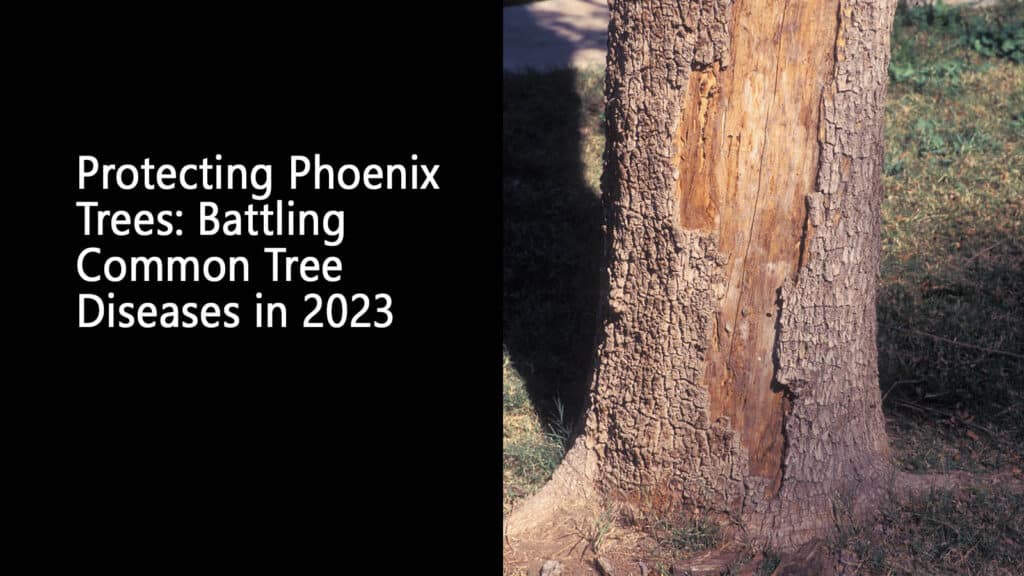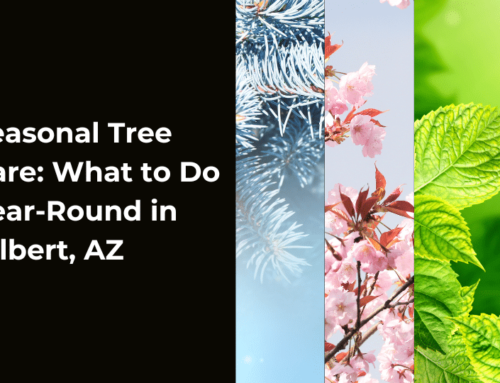
Protecting Phoenix Trees: Battling Common Tree Diseases in 2023
Phoenix trees are a cherished part of our urban and suburban landscapes, adding beauty and shade to our communities. However, in recent years, these magnificent trees have faced an increasing threat from common tree diseases. In this blog post, we will explore some of the most prevalent tree diseases affecting Phoenix trees in 2023.
Common Tree Diseases Affecting Phoenix Trees
- Palm Fusarium Wilt:
One of the most devastating diseases in Phoenix is the Palm Fusarium Wilt. It’s caused by the Fusarium oxysporum fungus and can quickly lead to the death of the tree. Early symptoms include wilting fronds and discoloration. Swift action is crucial to prevent its spread and maintain palm tree health. - Cycad Aulacaspis Scale:
This tiny insect can wreak havoc on Phoenix trees by sucking out their sap, causing the leaves to turn yellow and eventually die. Infestations are difficult to spot until they become severe, making regular inspections essential. - Citrus Canker:
While not exclusive to Phoenix trees, citrus canker is a disease that affects many species of trees, including citrus trees often found in Phoenix landscapes. It causes bumpy lesions on leaves, fruit, and stems and can lead to defoliation and fruit loss. - Palo Verde Borer Beetle:
This wood-boring beetle targets Palo Verde trees, a type of Phoenix tree, and can cause severe damage. Signs include exit holes, sawdust-like frass, and weakened branches. Definately, early detection is vital to saving the tree.
How to Protect Your Trees from Common Tree Diseases
- Regular Inspection:
Prevention is often the best approach when it comes to tree diseases. Also, regularly inspect your Phoenix trees for any signs of disease, including unusual spots or discoloration on leaves, wilting, or dieback of branches. - Pruning and Trimming:
Proper tree pruning and trimming can help maintain tree health. In connection, remove dead or diseased branches to prevent the spread of infections and promote new growth. - Soil Management:
Healthy soil is essential for healthy trees. Also, ensure proper soil drainage to prevent root rot and provide adequate nutrients through fertilization. - Pest Control:
Implement pest control measures to prevent infestations of scale insects and other pests. In some cases, beneficial insects or organic pesticides can be used to keep pests at bay. - Fungicide Treatments:
For fungal diseases like anthracnose, consider using fungicide treatments. Also, consult with an arborist to determine the appropriate product and application method. - Proper Watering:
Overwatering or under watering can stress Phoenix trees, making them more susceptible to disease. Additionally, establish a regular watering schedule and ensure the soil remains consistently moist but not waterlogged. - Tree Health Supplements:
Consider using tree health supplements or fertilizers specially formulated these kind of trees. Lastly, these products can provide essential nutrients and strengthen the tree’s natural defenses. - Consult an Arborist:
If you suspect a severe disease infestation or are unsure about the health of your Phoenix trees, consult with a certified arborist. They can diagnose problems accurately and recommend appropriate treatments.
How All About Trees Can Help
As you continue to battle common tree diseases in 2023, protecting your trees is paramount. At All About Trees, we are ISA certified and have over 25 years in the business; we are your trusted partner in this endeavor. Our team of experts is dedicated to preserving the health and beauty of Phoenix trees in your landscape. Contact us today and let’s work together in maintaining a healthy landscape.






